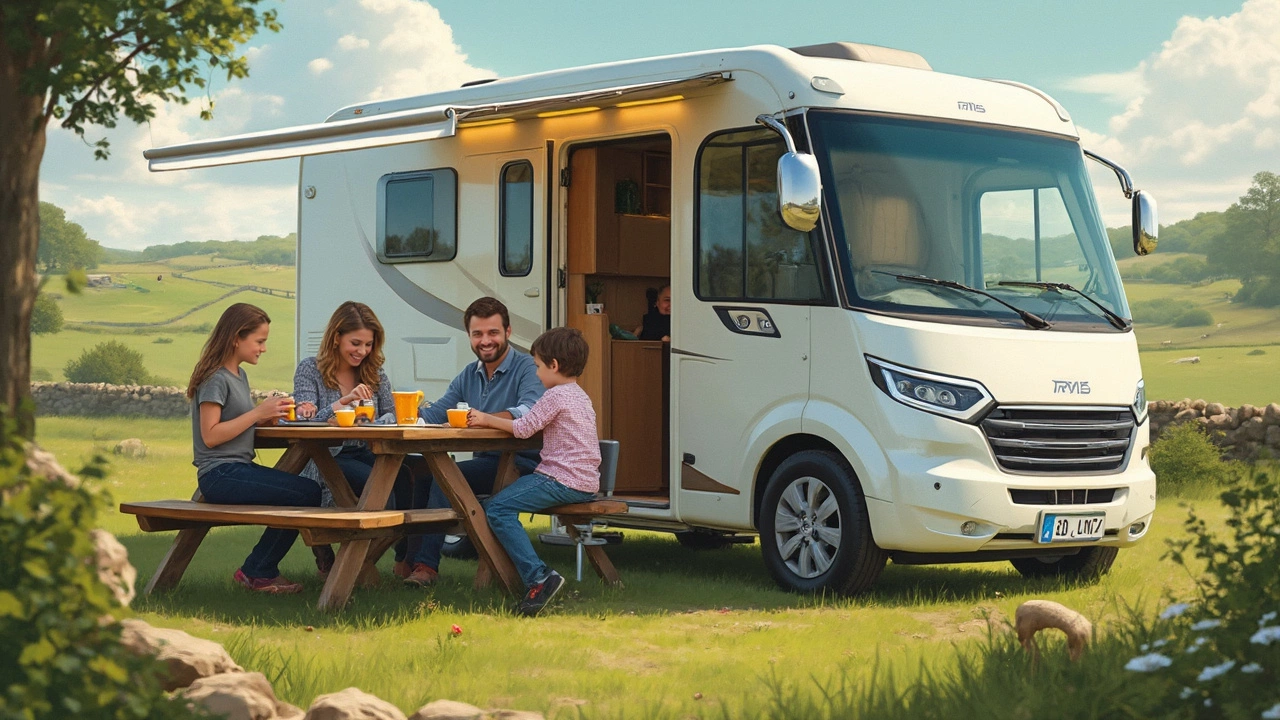RV Park Prices – What You’ll Actually Pay for a Motorhome Spot
If you’re planning a motorhome adventure, the first thing on your mind is likely the price of a place to park. Prices can feel all over the place – one site asks £30 a night, another £80, and you wonder what the heck you’re paying for. Below you’ll get a clear picture of the usual rates, what’s usually included, and where the hidden costs hide.
In the UK, a standard motorhome pitch at a basic campsite starts around £25‑£35 per night. Those sites give you a flat patch of ground, a couple of electric points and a waste disposal point. If you head to a more popular coastal park or a spot near a national park, expect to see £45‑£70 a night during peak season. The price jump usually reflects better facilities – think hot water, showers, laundry, and sometimes Wi‑Fi.
Season matters a lot. Summer weekends are the most expensive, with some high‑demand locations charging a premium of up to 30 % above the off‑season rate. In contrast, winter months can drop to the low‑20s or even a flat £15 a night at smaller, family‑run sites.
What’s Included in the Base Rate?
Most parks bundle the basics: a level spot, electricity (usually 13 A), fresh water, and a place to empty the black water tank. Some also give you access to communal laundry, a small shop, and a fire pit. If the price tag looks high, check the list of amenities – a full shower block, heated pads, and on‑site waste recycling can justify the extra pounds.
Don’t assume everything is free. Many parks charge extra for higher amperage (16 A or 32 A) power, which you’ll need if you have a larger motorhome or run several appliances at once. That fee can be £5‑£10 per night. Similarly, using the hot water system, Wi‑Fi, or a cable TV hookup often adds a small daily surcharge.
Pet fees are another hidden cost. If you travel with a dog, a lot of sites add £2‑£5 per night. It’s easy to overlook, but it adds up over a two‑week trip.
How to Keep Your RV Park Bill Low
Book early. Many parks offer early‑bird discounts of up to 15 % if you lock in your spot a month ahead. Also, look for loyalty programs – a few repeat visits can earn you a free night or a reduced rate.
Consider staying at smaller, independent sites instead of big chains. They often have lower rates and a friendlier vibe. Websites that aggregate campsite prices let you filter by price, so you can spot the cheapest options fast.
Travel off‑peak. If you can shift your trip to late spring or early autumn, you’ll still get decent weather but pay far less. Mid‑week stays are also cheaper than weekends.
Bring your own water and fill up at a local pump. Some parks charge per litre for water, which can add £1‑£2 per day. Likewise, dump your waste at a nearby service station if the park’s disposal fee is high.Finally, read the fine print. Some parks advertise “free electricity” but only include a low‑amperage supply. Knowing the exact power you need helps you avoid surprise fees.
Bottom line: expect to pay £25‑£35 per night for a basic spot, £45‑£70 for premium locations in peak season, and add a few extra pounds for power, pets, or laundry. By planning ahead, choosing the right time, and watching out for add‑ons, you can keep your RV park costs reasonable and enjoy more miles on the road.
RV Living Costs: How Much Does It Really Take to Live Fulltime in a Motorhome?
Curious about the real costs of living fulltime in an RV? This article breaks down actual expenses like site fees, utilities, travel, and insurance. Find out how different choices and habits can make or break your budget, and pick up simple tips to keep your costs in check. We'll look at what drives up costs and how full-timers save money. By the end, you'll know what to expect and how to avoid the most common money traps on the road.
